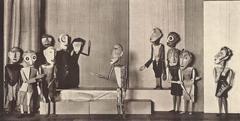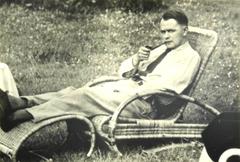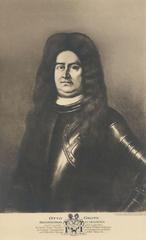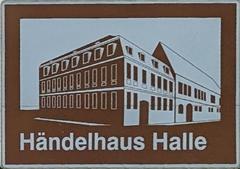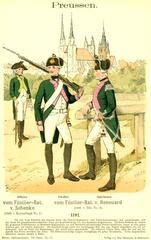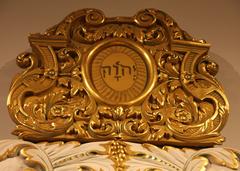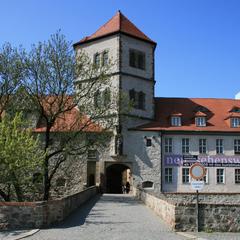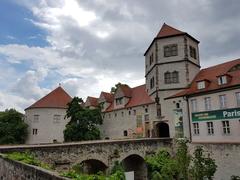
Francke Foundations Visiting Hours, Tickets, and Guide to Halle Historical Sites
Date: 03/07/2025
Introduction: The Francke Foundations – Halle’s Educational and Cultural Jewel
Located in the heart of Halle (Saale), Germany, the Francke Foundations (Franckesche Stiftungen) comprise an extraordinary historical campus known for its significant contributions to education, social reform, and international cultural exchange. Established in 1698 by August Hermann Francke—a leading figure in the Pietist movement—the Foundations began as a charity school for impoverished children and soon transformed into a thriving educational complex. With baroque architecture framing orphanages, schools, printing presses, a pharmacy, and one of Europe’s oldest museums, the Foundations reflect the ideals of the Enlightenment and Christian social responsibility.
Today, the Francke Foundations serve as an active center for education, research, and cultural programming. Their enduring legacy is marked by pioneering teaching methods, global missionary activity, and an ongoing commitment to social inclusion and dialogue. The site’s Cabinet of Artefacts and Natural Curiosities and its Historic Library attract visitors from around the world. Conveniently situated in Halle, the Foundations are the perfect starting point for exploring other historical attractions such as the Market Church and Moritzburg Castle. (Learn more at Francke Foundations – About Us, MehrSelbst – Francke Foundations)
Historical Overview
Founding and Early Vision
August Hermann Francke (1663–1727) established the Foundations in 1698, motivated by his Pietist beliefs and conviction in the transformative power of education. Starting with a charity school, Francke’s vision quickly expanded into a comprehensive campus that emphasized practical education, social responsibility, and the integration of faith and learning (Francke Foundations – About Us).
Growth into a Baroque School Town
By the 18th century, the Foundations had evolved into a “baroque school town.” The site included orphanages, Latin schools, teacher training colleges, printing presses, pharmacies, and the Cabinet of Artefacts and Natural Curiosities. Its innovative campus design and preserved baroque architecture continue to embody ideals of order and enlightenment (Francke Foundations – About Us).
Role in Pietism and Global Influence
Serving as the center of Halle Pietism, the Foundations promoted personal faith, practical Christianity, and social engagement. Their educational model blended academic rigor with moral and religious formation, influencing schools across Europe and beyond. The Foundations established extensive international networks, sending missionaries and educators worldwide, and publishing religious and educational materials in multiple languages (Francke Foundations – History).
Collections and Scientific Heritage
The Cabinet of Artefacts and Natural Curiosities, dating from 1700, is one of Europe’s oldest museums, offering interdisciplinary displays of natural history, ethnography, and theology. The Historic Library, with its 50,000 volumes, is a testament to Enlightenment scholarship (Francke Foundations – Science).
Social and Educational Innovations
Francke pioneered group instruction, teacher training, and holistic welfare approaches, combining education with vocational and medical services. The orphanage model was widely emulated, and the Foundations’ progressive teaching methods shaped educational reform (Francke Foundations – Education).
Modern Transformations and Revival
Throughout the 19th and 20th centuries, the Foundations adapted to political and social changes, updating their statutes and overcoming challenges such as world wars and the division of Germany. After reunification, extensive restoration efforts revitalized the campus, and today around 40 partner institutions, including schools and research centers, operate on-site (Francke Foundations – Facilities; MehrSelbst – Francke Foundations).
Ongoing Significance
Recognized as a unique “educational cosmos,” the Foundations are actively engaged in debates about inclusion, diversity, and international solidarity. Their vibrant calendar features exhibitions, festivals, and public programs (Francke Foundations – About Us).
Visitor Information: Hours, Tickets, and Tours
Opening Hours
- Tuesday to Sunday: 10:00 AM – 5:00 PM
- Closed on Mondays and select holidays
- Always check the official website for updates.
Tickets and Admission
- Adults: €8
- Reduced (students, seniors): €5
- Children and Adolescents (under 18): Free
- Guided Tours: Regular tours every Saturday for €2 in addition to admission; private or group tours can be arranged in advance for €40 per group, plus admission per person.
- Halle Card: Offers combined access to multiple city attractions.
Accessibility
- Wheelchair-accessible routes and facilities are available in key buildings, including ramps and accessible restrooms.
- Assistance for visitors with disabilities can be arranged—contact the visitor center for details.
- Facilities accommodate strollers and service animals; some historic buildings have stairs and uneven surfaces.
Getting There
- Address: Franckeplatz 1, 06110 Halle (Saale), Germany
- By Train: 15-minute walk from Halle (Saale) Hauptbahnhof.
- By Tram: Lines 4 and 7; stop at Franckeplatz.
- By Bus: Bus 36 towards ‘Dölau,’ stop at Franckeplatz.
- By Car: Limited parking available; public transport recommended.
Visitor Center
- Located in House 28, providing tickets, audio guides (in multiple languages), and information.
What to See and Do
Museums and Exhibitions
- Historic Orphanage Museum: Permanent and special exhibitions on Francke’s legacy and educational history.
- Cabinet of Artefacts and Natural Curiosities: 18th-century “Wunderkammer” displaying over 3,000 objects.
- Historic Library: Over 50,000 volumes in an original Baroque setting.
- Lange Haus: Europe’s longest half-timbered building (125 meters).
- Freylinghausen Hall: Venue for concerts, lectures, and events.
- Krokoseum: Children’s creativity center with workshops and activities.
Campus and Facilities
- More than 50 historic buildings, including schools, kindergartens, and research centers.
- Baroque gardens for relaxation.
- Café for snacks and refreshments.
Events and Special Programs
- Regular cultural events, lectures, and educational workshops.
- Check the official calendar for upcoming festivals and exhibitions.
Practical Tips for Visitors
- Most exhibition texts are in German; audio guides are highly recommended for non-German speakers.
- Comfortable footwear is advised for exploring historic surfaces.
- Allow at least 1.5–2 hours for your visit; longer if attending events or workshops.
- Family-friendly programs and interactive exhibits make it suitable for children.
- Photography for personal use is permitted; commercial photography requires prior approval.
- On-site cafeteria and several nearby restaurants offer dining options.
Accessibility and Inclusivity
- The site is committed to inclusivity, offering accessible routes and facilities for those with mobility, hearing, visual, or cognitive impairments.
- Many events and programs are designed for families and children.
- Service animals are welcome; check with the visitor center for other pets.
Related Halle Historical Sites
- Market Church (Marktkirche)
- Moritzburg Castle
- Händel-Haus
- State Museum of Prehistory
- Beatles Museum
For more information, see our articles on Historical Sites in Halle and Baroque Architecture in Germany.
Frequently Asked Questions (FAQ)
Q: What are the Francke Foundations visiting hours?
A: Tuesday–Sunday, 10:00–17:00; closed Mondays and select holidays.
Q: How much do tickets cost?
A: Adults €8; reduced €5; children under 18 free.
Q: Are guided tours available?
A: Yes, regular tours on Saturdays and private/group tours by arrangement.
Q: Is the site accessible for people with disabilities?
A: Yes, with accessible routes, restrooms, and assistance on request.
Q: Can I take photos inside?
A: Yes, for private use. Commercial photography requires prior approval.
Q: Is the site suitable for children?
A: Absolutely, with dedicated programs and interactive exhibits.
Digital Access and Research
- Extensive digital collections of archives, mission correspondence, and artefacts are available online (Digital Collections).
- The August Hermann Francke Study Centre supports research and scholarly engagement.
Ongoing Significance and UNESCO Candidacy
Since 1998, the Francke Foundations have been on Germany’s tentative list for UNESCO World Heritage status, recognizing their unique blend of educational innovation, social reform, and baroque heritage.
Plan Your Visit and Stay Connected
Experience the Francke Foundations’ rich history and vibrant present. For the latest visiting hours, ticket information, and events, visit the official Francke Foundations website. Download the Audiala app for audio guides and interactive content, and follow the Foundations on social media for updates and visitor tips.
Summary and Visitor Tips
The Francke Foundations are a testament to centuries of educational innovation, social reform, and cultural exchange. With meticulously restored buildings, extensive archives, and a dynamic program of exhibitions and events, the Foundations invite visitors of all ages to explore their unique “educational cosmos.” As a living center of scholarship and engagement, and a candidate for UNESCO World Heritage status, the Francke Foundations are a must-visit destination for anyone interested in history, culture, and the enduring impact of education.
Plan your visit today and become part of the ongoing story of the Francke Foundations in Halle.
Sources and Official Links
- Francke Foundations – About Us
- MehrSelbst – Francke Foundations
- Francke Foundations History
- Mission Archives PDF
- Digital Collections
- Francke Foundations Official Website


